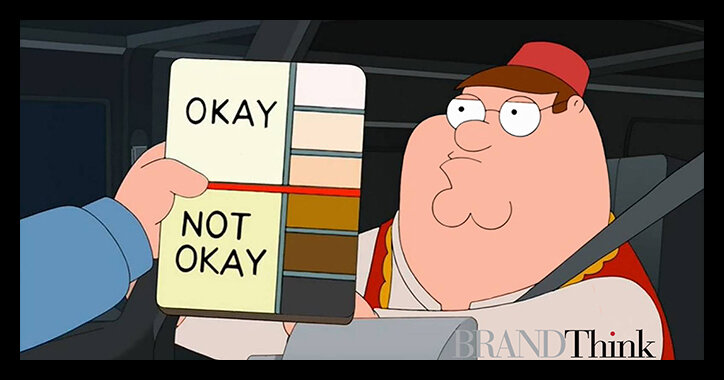
How Corporate Social Responsibility Influences Brand Equity
This has been bothering us and it’s been building for a while.
Yes, things are ugly out there. The country is struggling with social issues of pretty significant proportions. For brands it’s a tricky time. The people have unprecedented power. Brands know a viral tweet, a hashtag campaign or a Facebook group can get the attention of national media, praise or condemnation, then be instantly distributed around the world at the speed of fiber. In those digital moments companies and people can be taken down. Take United Airlines viral customer dragging video, or Pepsi’s Kendall Jenner ad and the Black Lives Matter backlash, or Dove inexplicably morphing black women into white women. Screw up and you’ll learn quick, this stuff has real teeth.
As our society struggles for greater inclusiveness, respect and tolerance, brands must now bow to the demands of corporate social responsibility worrying as much about what they don’t say as what they do, and when they say it. Brands now live in that place where free markets and free speech meet at the intersection of global connectivity and instant distribution, all amplified by social media and people who joyfully leverage technology’s ability to disrupt. Truth is, today there is always someone to piss off.

So intense is the need to be socially correct and so narrow is the view on messaging that advertisers have become clichés. We are awash in a muddy sea of sameness of corporate citizenship. Overdone storylines that are supposed to make you cry instead make you question the veracity of the storyteller. There’s the interracial couples, the single dad, ethnically diverse groups, nods to the GLBTQ community, all overzealous attempts to be loved by all, and in truth, to not be hated by anyone. In that sea of sameness, spots become undifferentiated versions of one another. They feel forced and motivated by fear, mired in stereotypical imagery melting together in a mushy forgettable mass.
During this year’s Super Bowl, those who avoided political correctness won. They did it with humor – Verizon, M&M’s, Doritos, Bud Light, Tide. They didn’t worry about you siding with them, or you liking them, they just wanted you to feel good, to give you 60 seconds of smile. A much better strategy.
Of course, there were those that felt the compelling need to tell the world how special, perceptive, wonderful and politically correct they are. Toyota went all out. They manipulated us with a handicapped girl learning to ski. A beautifully produced spot full of amputated limbs and prosthetic devices and heartache. You can now “Start Your Impossible” with Toyota, or yeah, buy a car. Then they piled on with the Mobility Anthem, announcing that Toyota’s mission is to make mobility better for everyone on the planet, can’t leave anyone out. Oh, and did you hear the one about the Rabbi, Priest, Monk and Mullah? They all go see the game together in a sprit of tolerance that exemplifies the Toyota brand… we know, us too. And yeah, that’s never been done before either. Who IS Toyota?
Quicken uses the now common ambiguously interracial couple. RAM trucks took advantage of the often used MLK speech technique to help us understand that Dodge is racially and emotionally sensitive. Seriously? It’s a damn truck.
Verizon couldn’t be content with just humor and did pat themselves on the back with the obligatory “we celebrate first responders” spot. Just because. And I love their line at the end “They answer the call. Our job is to make sure they can get it”. That’s just beyond bad. Feels like they picked that cause because, well, it was emotionally exploitable, not because it is in Verizon’s DNA. So not only will people not take Verizon seriously, but brand equity gets trampled in the process. T-Mobile stooped to babies, a tried and true strategy. And babies of every race. Just about the most clichéd spot of the bunch. Clunky VO didn’t help.
Bud got it right. The Bud spot featured retooling the factory to make cans of water to support hurricane victims. It was sincere, true to their DNA, connected to what they do, and not replicable by any other brand. Simple, focused, and not trying to be all things to all people – just a good global citizen. This works.
So here’s the deal. Demonstrating corporate social responsibility has become a requirement. Millennials favor purpose-driven and socially responsible brand relationships. But these types of spots have just gone over the top. With everyone exploiting the same messaging, imagery, and rehashed storylines, you end up with no one having authentic credibility. Rather, the whole category feels forced and motivated by corporate anxiety and cautions of the board room. Brands need to rethink things. They need to approach finding brand purpose by identifying core values and aligning them with who they are and what they do. Values that are part of a brand’s DNA, its culture, something they can uniquely own, and own over time.
Because we just can’t take any more of this crap.
***
Rant, pontificate, agree, or disagree, but please do opine. Love to hear your thoughts. If you found the read valuable, we’d be grateful for a share and a like.
See all the spots from the Super Bowl here.


